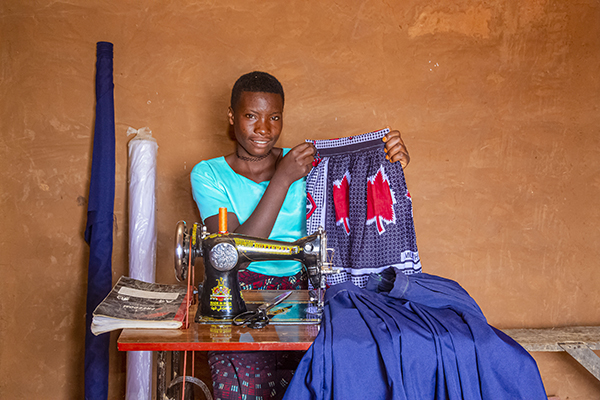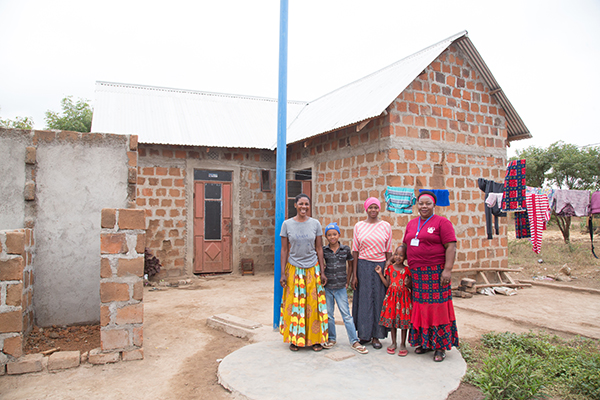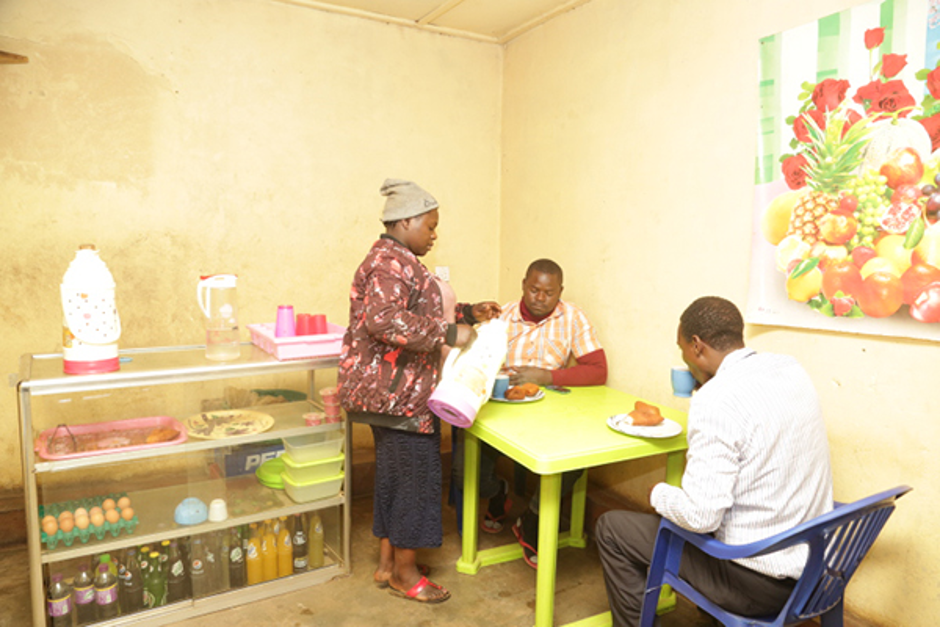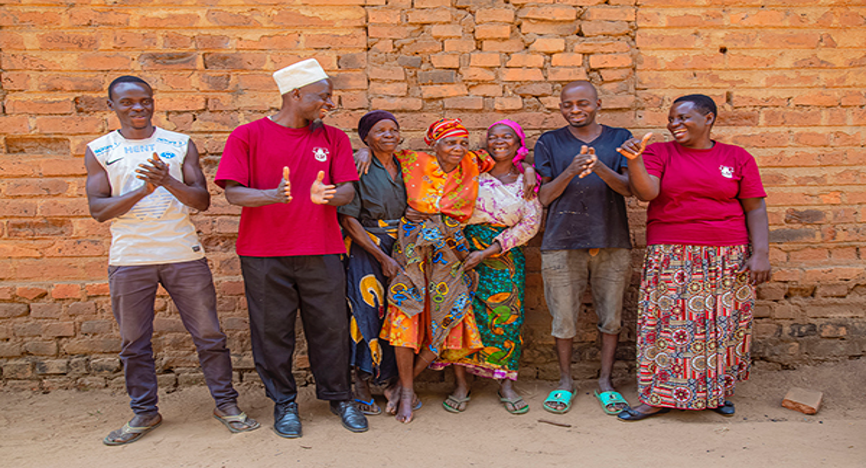Having escaped from child marriage and been empowered to make something of herself, Zainabu Mshetwa today uses her tailoring skills in her village in rural Kahama in Shinyanga to make school uniforms and other clothes. The intervention of a paralegal has given her a better chance at life by allowing her to start building her life one step at a time.
CATEGORY: GENDER BASED VIOLENCE
Challenge:
Zainabu Mshetwa (16) from rural Kahama in Shinyanga, today makes school uniforms from a sewing machine that she received when she completed a three-month tailoring course in Musoma.
Her present situation, however, probably would have been any other, we don’t know, but she might as well have remained a married teenager today. Child marriage isn’t uncommon in these parts of the country, and like many other young girls of school age like her it didn’t happen by her will, but rather her father decided for her.
This and numerous other suppressive traditions continuously deny girls the possibilities of becoming who they want to in future, and in essence withholding their full rights.
Additionally, they suffocate opportunities to access these rights, which are the cornerstone of the Access to Justice Program that LSF implements countrywide.
At 14, her young life took an unfortunate turn, one day while she was away at a wedding, two young men arrived at her family home, one had accompanied his friend, whose the aim of his visit was none other than to make known his desire to marry her.
Her father, who was home at the time informed them that, she was away and that they would be welcome to return when she is back.
“When I returned home from the wedding, my mother came to me and informed me that, a marriage proposal for me had been put forward, but I simply kept quiet. My mother protested this decision telling my father that, I was too young to be married, but he wasn’t having any of it;
“I however came to make my position known that, I didn’t want to get married. I remember my mother and I travelled to Maswa, and behind our backs, my father accepted five heads of cattle as dowry, and went so far as to move the animals away from home. When we returned, he ordered me to move to my suitor, but when I refused, he forced me out, and I had to go,” recalls Zainabu.
She lived with the man for four months that she only describes as absolute hell – intercourse against her and beatings when she didn’t submit became regular features of her life. Fearing for her life, she returned home, but her husband withheld her belongings in an attempt to maintain a degree of control over her.
Solution:
Lulu Abdallah, the paralegal, who led us to Zainabu, says the case was brought her attention by neighbours.
“Neighbours who saw her suffering contacted me and explained what was taking place, and so before even involving her mother, I took the initiative to work on the matter, and try to extricate her from that terrible situation. The man that married her was 25 years-old and he treated her in a nasty manner. It was also claimed that, he smoked marijuana and whenever he got high he turned onto her;
“So, with the help of my colleagues, we summon the man in a bid to address the matter and eventually end the marriage, but he wouldn’t budge. We however succeeded in getting both sets of parents together, however, Zainabu’s father was less cooperative. We persisted against huge odds, but finally, we were able to separate them, and she returned home,” she explains.
Zainabu was medically examined and she was found to be healthy and not expecting. The man’s family then demanded their dowry back, but weren’t successful because Abdallah and her colleagues stood firm and told them that, the marriage was illegal from the onset and for that matter, they couldn’t redeem the dowry.
Kabula Sagalala, Zainabu’s mother, says, “My husband left with the dowry cattle and settled in Mpanda with his other wives leaving me to take care of every family need – food, the children’s schooling, clothing and everything else all on my own. I work the land that my sister has apportioned me and that’s how we live on a daily basis.”
Last year a circular was distributed in the ward, alerting the public about an upcoming programme for girls between the ages of 14 and 18, that would provide them with skills training for personal economic empowerment.
When the programme finally kicked off, Abdallah says, she made arrangement to enroll Zainabu and help her build her future. She was accepted onto the programme and went off to be trained as a tailor.
The programme later provided each girl with a sewing machine, which we found Zainabu using when we visited her.
Result:
“I didn’t want to get married and now I’m enjoying my work. I use my skills to make school uniforms and ordinary clothes, which I sell and the money we get from them helps us take care of everyday needs such as food, and also importantly buying medicine when one of us falls ill. My biggest need is fabric, which if I can acquire easily will allow me to do more work,” she says shyly.
Abdallah calls on parents to prioritize the welfare of their children, particularly girls and suppress the strong elements of greed that often put young girls’ lives at risk. Girls also need to learn to stand firm, and never relegate their dreams.



